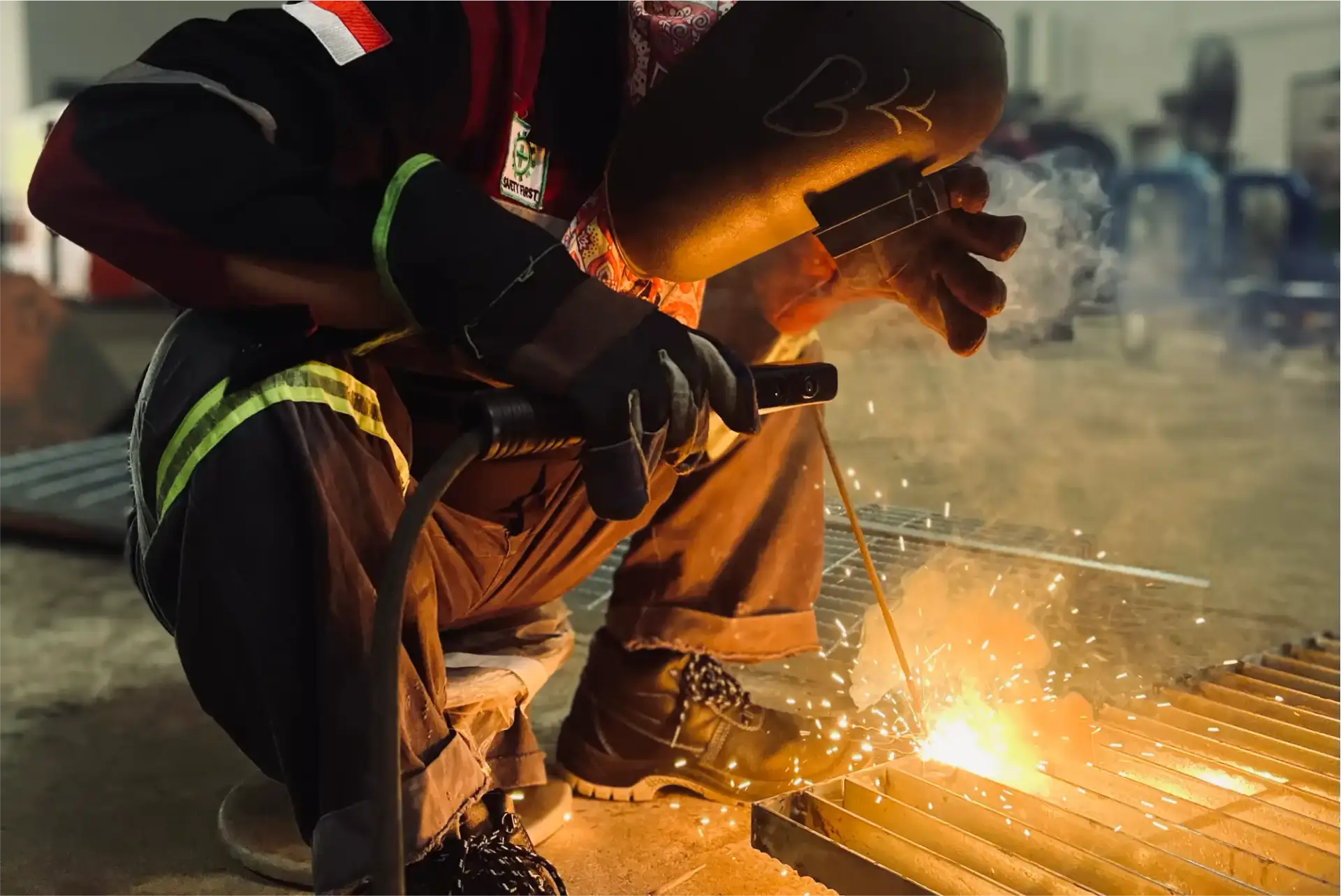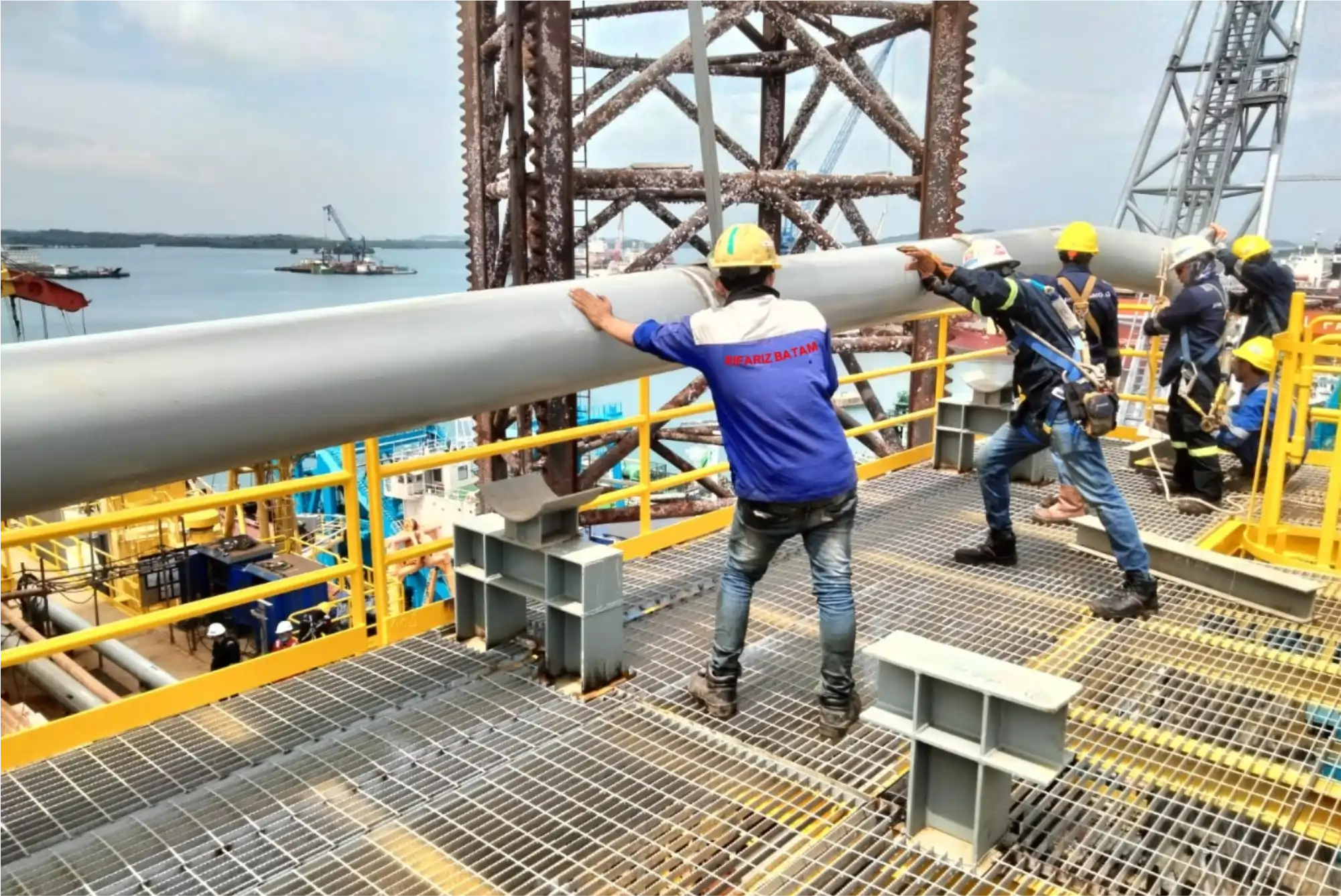Key Factors in Fabrication for the Industrial and Oil & Gas Sectors
In the heavy industry and oil & gas sectors, fabrication plays a vital role in ensuring safety, efficiency, and operational sustainability. Proper fabrication processes can greatly impact equipment reliability and facility durability.
1. Material Selection for Harsh Environments
Industries often operate in extreme conditions, including high temperatures, pressure, and exposure to harmful chemicals. Therefore, selecting the right materials is crucial for ensuring that fabricated equipment can withstand such environments.
Corrosion Resistance: Many oil & gas facilities are located near saltwater, where corrosion is a significant issue. Using materials like stainless steel and superalloys can help prevent corrosion and ensure longevity.
Material Strength: Equipment used in drilling rigs or refineries must endure heavy loads and high pressure. Materials such as carbon steel and high-alloy steel are preferred for their durability.
Temperature Resistance: Equipment in the oil sector often operates at high temperatures. Choosing materials that can withstand extreme heat without deforming is essential.
2. Reliable Design for Operational Efficiency
Downtime can be costly in oil & gas operations. Therefore, fabrication designs must focus not only on efficiency but also on long-term reliability.
Maintenance-Friendly Design: Equipment designed for easy maintenance helps minimize downtime during operations, ensuring smooth workflow.
Automation Integration: As the industry moves toward automation and digitalization, designs that accommodate sensors and automated controls enhance operational efficiency and safety.
3. Welding Process and Connection Quality
Welding is a critical aspect of fabrication, especially in high-pressure and hazardous environments like oil & gas. Poor welding can lead to leaks, structural failures, or even explosions.
High-Quality Welding: Utilizing proper welding techniques, such as TIG (Tungsten Inert Gas) and MIG (Metal Inert Gas), is vital for ensuring strong and durable connections.
- Compliance with Standards: Ensure that your fabrication partner adheres to international welding standards like ASME (American Society of Mechanical Engineers) or API (American Petroleum Institute) for safety and reliability.
4. Strict Quality Control
Fabrication projects in the oil & gas industry require rigorous oversight to ensure the final product meets expected specifications. All fabrication work must undergo various tests and inspections.
Nondestructive Testing (NDT): This testing method allows for quality inspection of joints and materials without damaging the product. Common NDT methods include ultrasonic, radiographic, and magnetic particle testing.
Dimensional Accuracy: Precision in dimensions is crucial to ensure all components function correctly in demanding operational environments.
5. Safety and Regulatory Compliance
Safety is paramount in the oil & gas sector. All aspects of fabrication must meet stringent safety standards to prevent accidents that could lead to significant losses or fatalities.
International Safety Standards: Fabrication processes should comply with safety regulations such as OSHA (Occupational Safety and Health Administration), API, and ISO. Non-compliance can have serious legal and operational consequences.
Workplace Safety and Environmental Responsibility: Responsible fabrication companies prioritize worker safety and environmental sustainability, reducing risks associated with operations.
6. Timeliness and Project Efficiency
In the oil & gas industry, time is money. Any delays can result in significant financial losses, so fabrication vendors must meet strict deadlines without compromising quality.
Efficient Project Management: Successful fabrication vendors employ robust project management systems to ensure that every stage of the work progresses on schedule with appropriate resource allocation.
On-Time Delivery: Timely delivery of fabricated components is essential. Coordination between vendors and clients is crucial to prevent project delays.
Conclusion
Fabrication in the industrial and oil & gas sectors requires careful planning and execution. Choosing the right materials, ensuring reliable designs, maintaining high-quality welding, implementing strict quality control, and adhering to safety regulations are critical to ensuring operational reliability and efficiency. By partnering with a fabrication expert who understands the needs of the oil & gas industry, you can avoid costly downtimes and ensure that your equipment can withstand the most extreme conditions.
PT Rifariz Batam offers specialized fabrication services designed to meet the high standards of the industrial and oil & gas sectors. With an experienced team, cutting-edge technology, and a commitment to safety, we are ready to be your trusted partner for every fabrication project.






